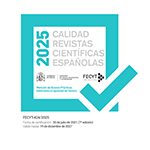“I was not a nobody, but no one knew what I was”: A Mother’s Reclamation of her Story in Madhavi S. Mahadevan’s Bride of the Forest
Abstract
The ideological stronghold of mythology in the cultural consciousness necessitates the production of counter-ideologies that decenter the normative narrative with more subversive and progressive tales. The story of Madhavi from the Indian epic Mahabharata is upheld as a tale of a devoted daughter who is blessed with a privileged womb, which is prophesied to give birth to great kings, and a boon of chirkaumya, the ability to regain virginity. Devoid of any rights over her own body, Madhavi becomes instrumental for Gaalav, the disciple of Vishwamitra, in fulfilling his promise of eight hundred white horses with black-colored left ears as gurudakshina (tradition of repaying one’s teacher) to his teacher. Her womb is bartered, allowing men to exchange her indefinitely as a commodity with utilitarian value. Her voice, desires and feelings are undermined by the structural needs of the masculine tale. This paper seeks to read the novel Bride of the Forest by Madhavi. S. Mahadevan in the context of motherhood studies and postfeminism through the examination of the character Madhavi. It inquires into the representation of the maternal figures who are mapped on a power spectrum to posit that both agency and victimhood co-exist in uncomfortable ways.
Downloads
Article download
License
Amaltea. Revista de mitocrítica is an open access journal which means that all content is freely available without charge to the user or his/her institution. Users are allowed to read, download, copy, distribute, print, search, or link to the full texts of the articles in this journal without asking prior permission from the publisher or the author. This is in accordance with the BOAI definition of open access."Full-text articles published in Amaltea. Revista de mitocrítica are open-access and published under a CreativeCommons License Attribution-NonCommercial-NoDerivatives 4.0 International (CC BY-NC-ND 4.0) http://creativecommons.org/licenses/by-nc-nd/4.0/deed.en. Reproduction, distribution or public communication of these articles with commercial purposes requires the Editor’s prior written. Redistribution for academic purposes is permitted, provided that the source and authorship are properly acknowledged, and that the journal is credited with the first publication, by adding a link to the journal's official URL. If available, the DOI of the article in question should also be included.













